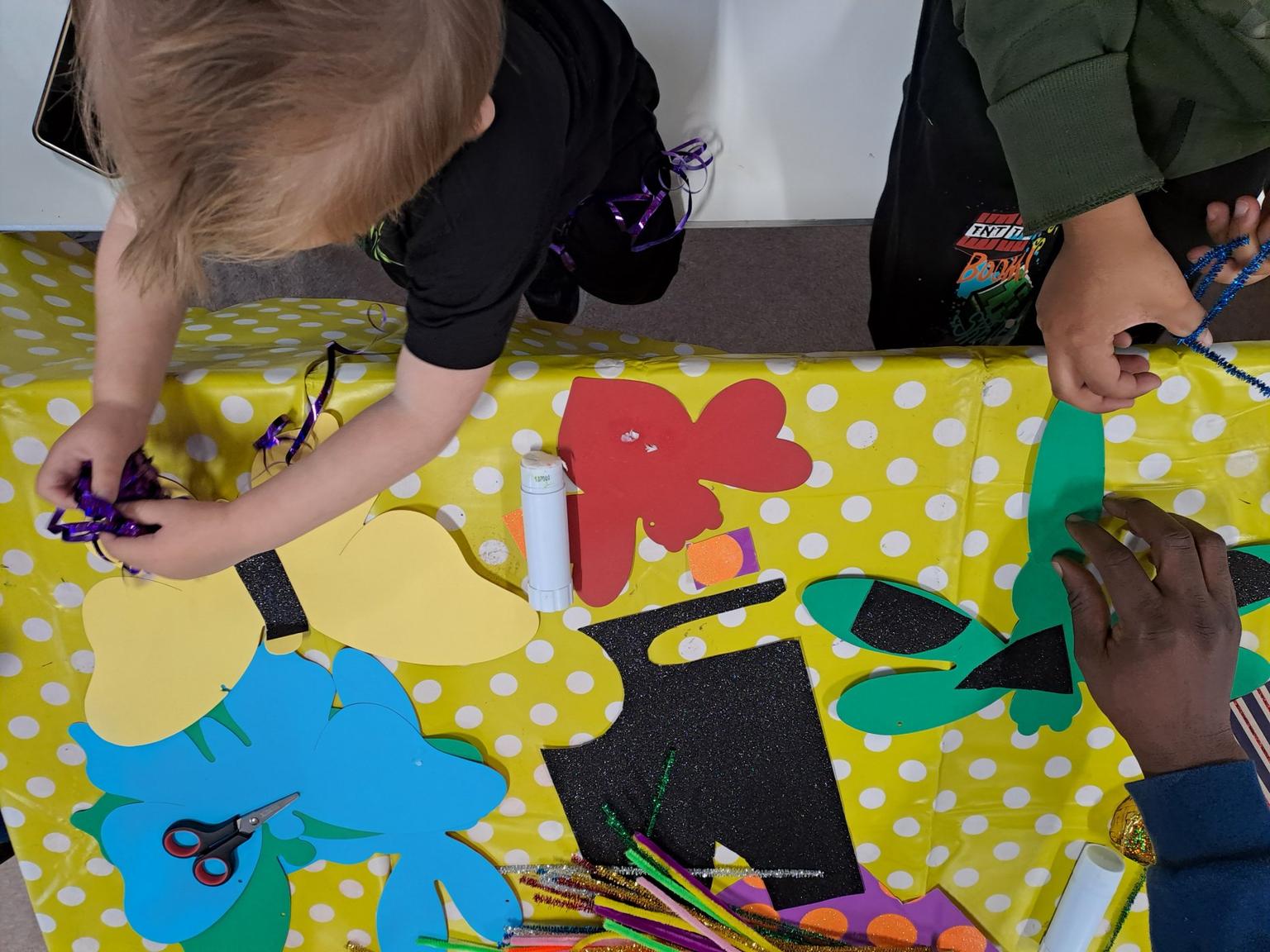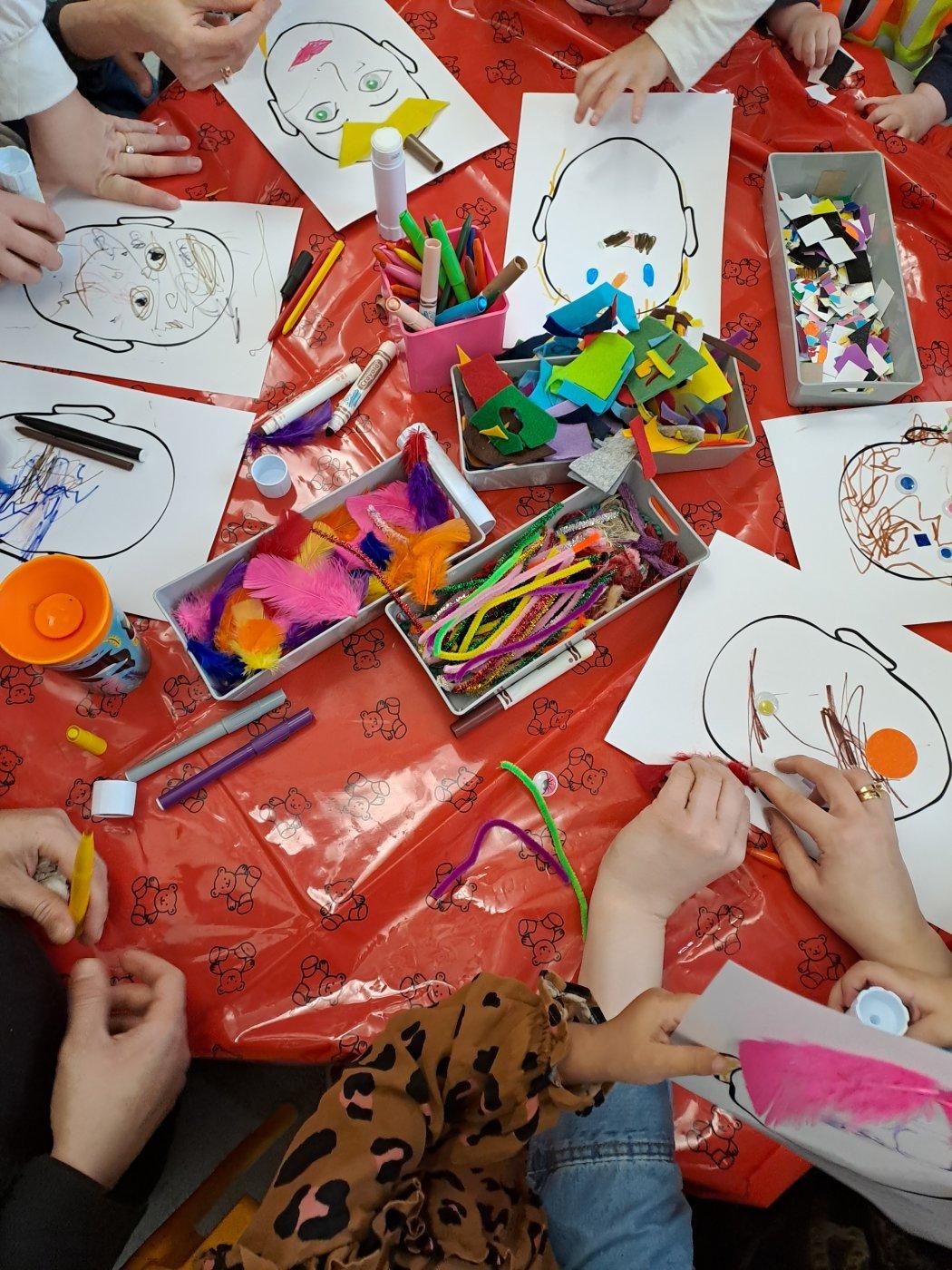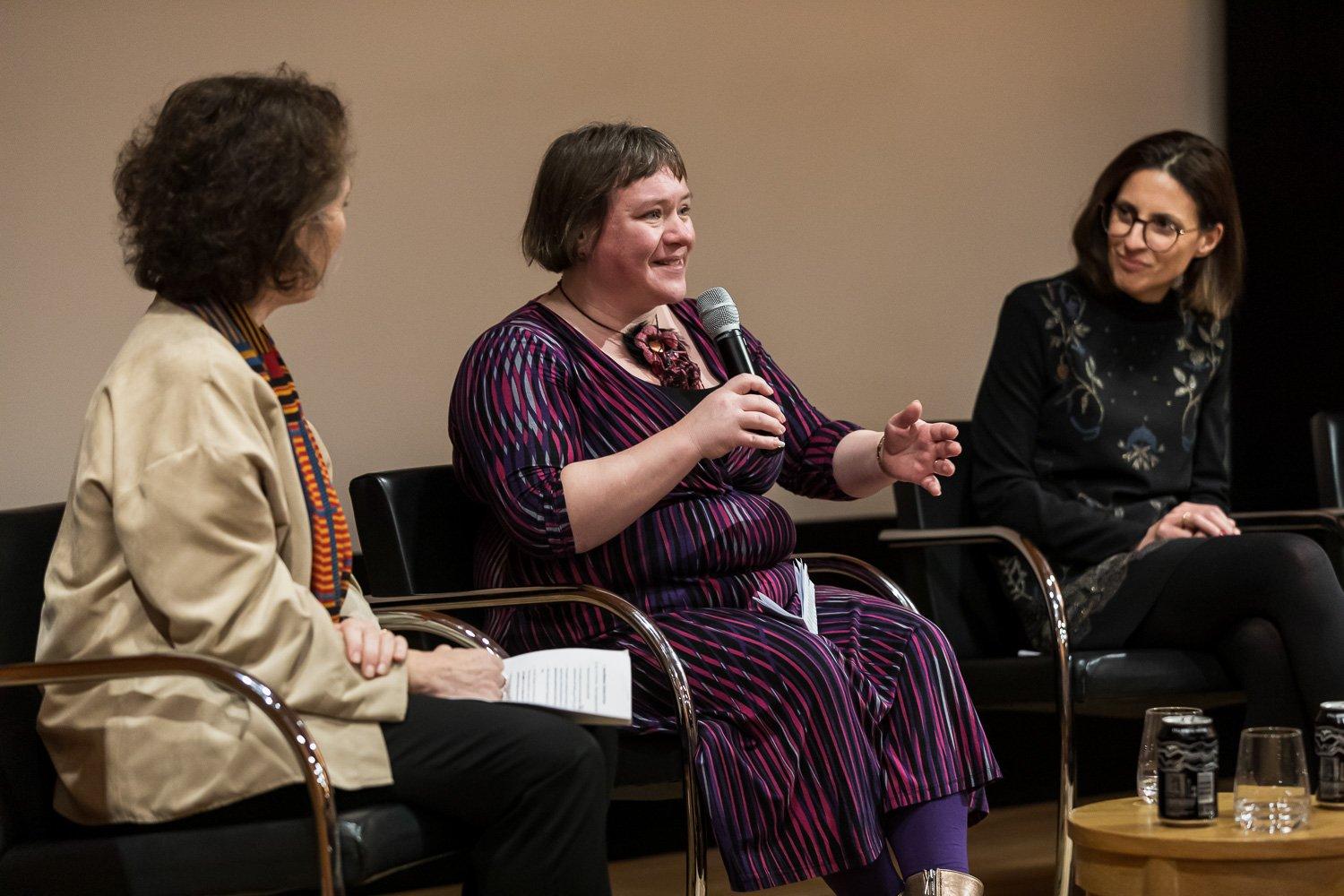How Mini Wonders is supporting children’s development in Leeds

The Learning team at Leeds Industrial Museum share how Mini Wonders sessions at their museum are helping local families to support early child development.
Leeds Industrial Museum is one of 15 museums across the UK currently taking part in Mini Wonders, a research and development (R&D) programme exploring how museum spaces, and access to great art and culture, can support families and child development and increase the number of children who are ready for school.
Mini Wonders has been jointly created and funded by Art Fund, through a legacy grant from the Foyle Foundation, and Nesta. Working together with Nesta, Art Fund and external experts, the lead museums have been working to develop an engaging and evidence-informed programme for families.
The programme brings together a group of families (or 'cohort') to take part in an eight-week syllabus at the participating museums. Each museum is hosting several cohorts, back-to-back, during the R&D phase.
The museums are sharing what they learn with each other, through an approach that incorporates test-and-learn cycles and builds evidence throughout.
What Mini Wonders looks like in Leeds
Mini Wonders: Leeds takes place for two-and-a-half hours each Thursday morning in the atmospheric setting of the Industrial Museum at Armley Mills. It is a series of eight weekly group sessions for caregivers and their children aged two to four.
Sessions cover topics ranging from exploring feelings and child-led play, to giving encouragement and rewards and the importance of routines.

Insights from the programme so far
Here Eve Phethean, Learning and Access Officer at Leeds Industrial Museum, and Kate Fellows, Head of Learning and Access for Leeds Museums and Galleries, reflect on the emerging insights from the early stages of the programme and think about the potential for scaling this work across the museum service in Leeds as well as throughout the UK’s museums and galleries sector.
Museums are community assets
Kate Fellows, Head of Learning and Access for Leeds Museums and Galleries, says: “Being in your local space and your local museum is important. We’ve got some families who are newly arrived in the city or haven’t been here for very long, so it’s also about settling and finding roots. It’s about acknowledging their own cultural background and what’s happened in their lives, but also about making a life here right now.
“I think there’s a great sense of ownership of the spaces, which is really good, and I think that’s fostered by museum staff. What museum staff bring is that non-judgmental approach, which comes from working in an arts and cultural setting with young people. It’s that link between object, place, and people.”

Supporting families and sharing ideas through engaging experiences
Eve Phethean, Learning and Access Officer at Leeds Industrial Museum, says: “We've been doing creative fun activities based on our museum collections to bring the session topics to life. We are a large industrial museum based in an old woollen mill, so there's been lots of sheep related activities!
“We did some wet felting for the week exploring feelings. Each colour of felt represents a different feeling. And we put all our different coloured feelings in and then we felt it together. It's really easy. It's lovely, really tactile.
“I think speaking to parents about tips and strategies to support their child’s development is a lot easier when they're actually engaged in a creative activity themselves. It feels a lot less pressurised.
“It’s the actual engagement – doing activities together as well... When do you spend two hours with your child, just focusing on the two of you? I think that’s quite rare for a lot of families, because if you’re at home, you’re doing other stuff, or if you’re at a ‘stay and play’, there’s more focus on them doing things on their own. That’s the difference in Mini Wonders, I think.”
Speaking to parents about tips and strategies to support their child’s development is a lot easier when they're actually engaged in a creative activity themselves
Building non-judgmental relationships
Eve: “We've had a lot of feedback from the families that are really, really keen to come back. Having that relationship that we’ve built up over eight weeks has been so nice – to know about and learn about these families, but also to see where we can help them.”
Kate: “The parents are trusting you to be non-judgmental. They’ll happily talk to you as the facilitator or leader, but it takes time to build that trust with the other parents they don’t know. They’re in the same boat, coming from different backgrounds and lived experiences, but they were all there for the support.”
Eve: “I think it took a bit of time for them to come around to chatting amongst themselves. They were really good at talking to me, but among the group itself, it took longer. It was nice to see them develop that confidence as a group.”
In numbers
The potential for impact and scale
Kate: “I think the programme demonstrates that the possibilities for museums to support families in the early years are absolutely immense – much bigger than the one-off, drop-in sessions that we typically offer as a sector.
“The confidence of those families – how they’ve become attached to the spaces, confident in using them, and feeling a sense of belonging – is clear. At the same time, our confidence as museums has grown. It means you could just keep going, and the possibilities would be awesome.
“This kind of concentrated cohort approach is something we've never done for early years cohorts before… We've never done it in this rolling, continuous way: finish one cohort, then start the next, and so on.”
I think [Mini Wonders] demonstrates that the possibilities for museums to support families in the early years are absolutely immense
“Very practically, there’s the potential for funding and partnership opportunities if we can demonstrate that this actually works as an intervention. That’s exactly what the research is aiming to do.
“Leeds Museums and Galleries are spread across the city, and you could easily do this across the region, across multiple venues and services... Because we're a service of eight sites, there's a lot of sharing across the service among various types of museums and settings. Repeating something to test and learn again and again isn't necessarily something we've done before. But being able to do this six times in a row is brilliant, because then we should know whether it definitely works as a sector.
“Doing it on a larger scale across a region is possible, with coordination and potentially additional support. Then we’ve got an eight-week programme that can be rolled out pretty much anywhere.”
You can stay updated on Mini Wonders by subscribing to our Early Years Community of Interest.